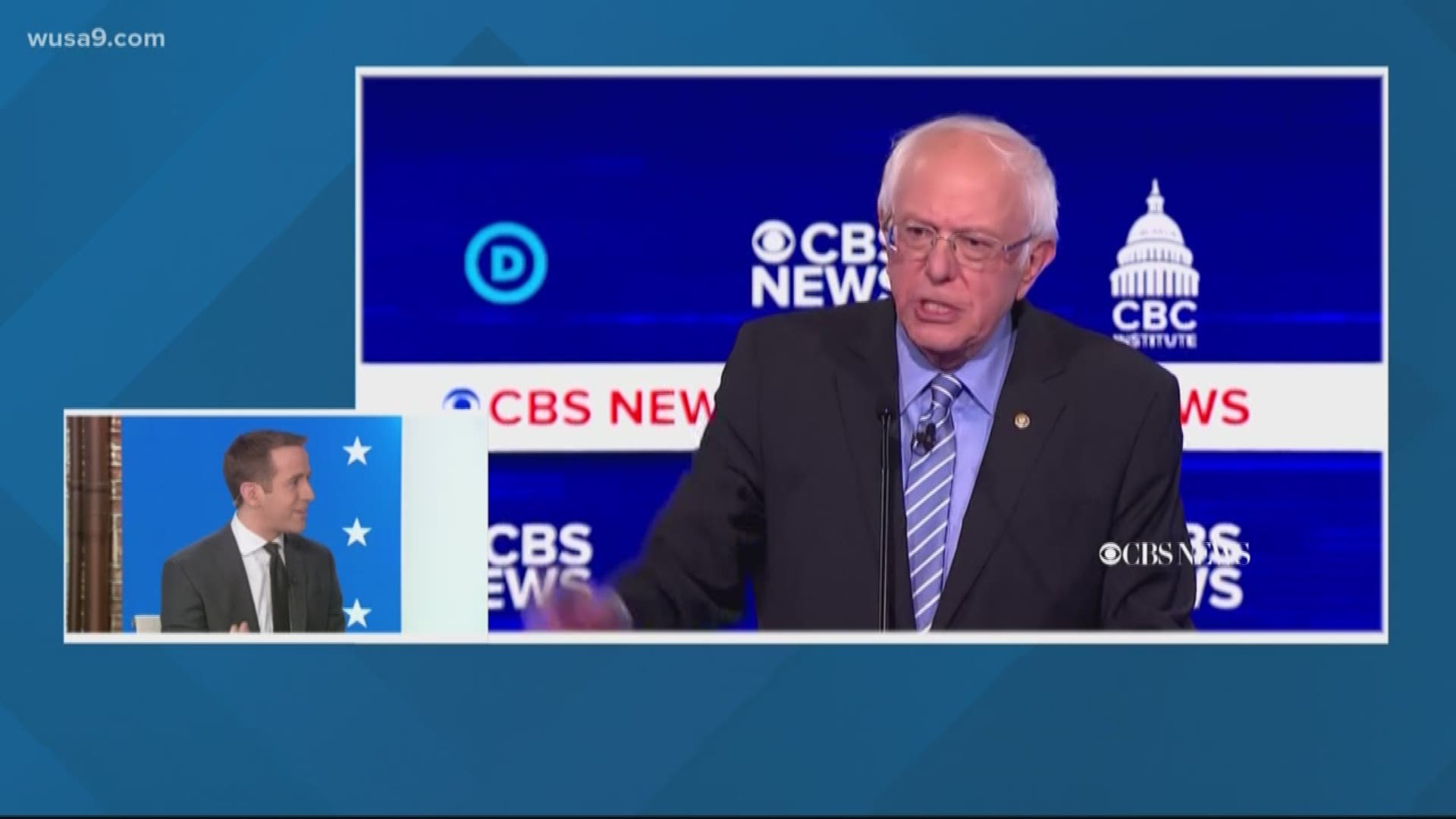VIRGINIA, USA — It’s an animating issue for Virginia voters, a promise that galvanized two governors, and eventually transformed the way the commonwealth covers thousands with affordable health insurance.
Medicaid expansion – pushed by former Gov. Terry R. McAuliffe and realized by current Gov. Ralph S. Northam – led to 375,000 people across Virginia gaining new health care coverage.
Because Democratic lawmakers campaigned heavily on the issue, partially contributing to Republican losses state-wide in 2017, enough GOP lawmakers lowered their opposition for Medicaid expansion to become law in May 2018.
Medicaid is now available to single Virginia residents earning $17,236 per year, or to adults earning $29,435 in a household of three.
Where the issue stands in the Democratic presidential primary
Tense moments invariably mark every Democratic presidential debate – especially when the conversation turns to expanding healthcare nationwide.
But the discussion dominated by Sen. Bernie Sanders concerns Medicare-for-all, expanding health coverage to all Americans. Under the ambitious vision, no one would be without health insurance, and higher taxes would pay for every American’s medical costs.
Bernie Sanders & Elizabeth Warren support some form of Medicare-for-all
Sanders’ position is the most liberal and most reliant on the federal government to handle all Americans’ health care needs.
"I’m running for president because the time is long overdue for the United States to join every other major country on Earth and guarantee health care to all people as a right, not a privilege," Sanders announced in a Feb. 2019 tweet.
Private health insurance would be essentially eliminated. But Sanders has struggled on the debate stage to explain how his program would be financed.
"How much time do we have?" Sanders asked the moderators of Tuesday’s South Carolina debate, when the moderators asked him to explain the math behind the proposal.
In a related stance, Warren supports a transition plan into what Sanders envisions.
"No later than my third year in office, I will fight to pass legislation that would complete the transition to full Medicare-for-all," Warren wrote online.
"By this point, the American people will have experienced the full benefits of a true Medicare-for-all option, and they can see for themselves how that experience stacks up against high-priced care that requires them to fight tooth-and-nail against their insurance company," she continued.
The 5 moderate candidates don’t want government running our entire health care system
Biden, Bloomberg, Buttigieg, Klobuchar and Steyer all endorse an idea of "Medicare-for-all, for those who want it," a phrase used most often by the former South Bend Mayor.
The five moderate candidates all want to introduce a “public option,” which is a government-run health insurance agency competing with other U.S. private insurance companies.
"Instead of starting from scratch and getting rid of private insurance, [Biden] has a plan to build on the Affordable Care Act by giving Americans more choice," through a public option, the former vice president’s campaign website states.
Bloomberg and Klobuchar stand in sharpest contrast to Sanders. The former New York mayor contends a government takeover of healthcare “would bankrupt us for a very long time.”
Klobuchar believes Medicare-for-all should be an aspirational goal for Democrats, but the sweeping policy cannot happen now.
"I think the best way to get action now… Is trying to get a public option in there,” Klobuchar told CNN’s Don Lemon. “That is a way to provide a public alternative that’s real… So that we can bring down the rates.”
Buttigieg said in a CNN town hall that in addition to providing a public option, the current Obamacare system must be made more efficient and easier to understand.
"We have to do that unfashionable technical work to make the system more efficient,” Buttigieg said.
"I refuse to accept that when citizens of just about every developed nation in the world enjoy this, that we should settle for less.”
State of the Primary Race in Virginia
According to Monmouth University’s latest survey of likely Virginia primary voters, Sanders, Bloomberg and Biden lead the field:
- 22% Bloomberg
- 22% Sanders
- 18% Biden
- 11% Buttigieg
- 11% Undecided
- 9% Klobuchar
- 5% Warren
The Monmouth poll was conducted by telephone from Feb. 13 to 16, 2020 with 400 Virginia voters. The margin of error is +/- 4.9 percentage points.


